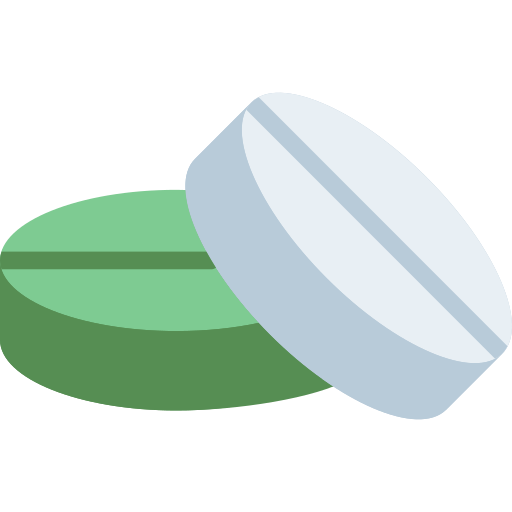
Potassium Citrate
1080 mg
Eskayef Pharmaceuticals Ltd.
Product Details
Description
Renal Tubular Acidosis (RTA) With Calcium Stones: Potassium citrate is indicated for the management of renal tubular acidosis Hypocitraturic Calcium Oxalate Nephrolithiasis Of Any Etiology: Potassium citrate is indicated for the management of Hypocitraturic calcium oxalate nephrolithiasis Uric Acid Lithiasis With Or Without Calcium Stones: Potassium citrate is indicated for the management of Uric acid lithiasis with or without calcium stones
Potassium Citrate is contraindicated: In patients with hyperkalemia (or who have conditions pre-disposing them to hyperkalemia), as a further rise in serum potassium concentration may produce cardiac arrest. Such conditions include: chronic renal failure, uncontrolled diabetes mellitus, acute dehydration, strenuous physical exercise in unconditioned individuals, adrenal insufficiency, extensive tissue breakdown or the administration of a potassium-sparing agent (such as triamterene, spironolactone or amiloride). In patients in whom there is cause for arrest or delay in tablet passage through the gastrointestinal tract, such as those suffering from delayed gastric emptying, esophageal compression, intestinal obstruction or stricture, or those taking anticholinergic medication. In patients with peptic ulcer disease because of its ulcerogenic potential. In patients with active urinary tract infection (with either urea-splitting or other organisms, in association with either calcium or struvite stones). The ability of Potassium Citrate to increase urinary citrate may be attenuated by bacterial enzymatic degradation of citrate. Moreover, the rise in urinary pH resulting from Potassium Citrate therapy might promote further bacterial growth. In patients with renal insufficiency (glomerular filtration rate of less than 0.7 ml/kg/min), because of the danger of soft tissue calcification and increased risk for the development of hyperkalemia.
Pregnancy Category C. Animal reproduction studies have not been conducted. It is also not known whether Potassium Citrate can cause fetal harm when administered to a pregnant woman or can affect reproduction capacity. Potassium Citrate should be given to a pregnant woman only if clearly needed. Nursing Mothers: The normal potassium ion content of human milk is about 13 mEq/L. It is not known if Potassium Citrate has an effect on this content. Potassium Citrate should be given to a woman who is breast feeding only if clearly needed.
This medication should not be used ifpatient have (Addison's disease), current bladder infection, uncontrolled diabetes, severe heart disease (e.g., recent heart attack, heart damage), certain stomach/intestinal problems (diabetic gastroparesis, conditions decreasing gut movement, peptic ulcer, blockage), severe kidney disease (e.g., inability to make urine), potassium-restricted diet, high potassium levels, severe loss of body water (dehydration). Before using this medication, tell your doctor or pharmacist your medical history, especially of: low calcium levels, severe diarrhea, heart problems (e.g., irregular heartbeat, heart failure), kidney disease, stomach/gut problems (e.g., irritable bowel), severe tissue damage (e.g., severe burns). Before having surgery, tell your doctor or dentist that you are taking this medication.
Pediatric Use: Safety and effectiveness in children have not been established.
Treatment Of Overdosage: The administration of potassium salts to persons without predisposing conditions for hyperkalemia rarely causes serious hyperkalemia at recommended dosages. It is important to recognize that hyperkalemia is usually asymptomatic and may be manifested only by an increased serum potassium concentration and characteristic electrocardiographic changes (peaking of T-wave, loss of P-wave, depression of S-T segment and prolongation of the QT interval). Late manifestations include muscle paralysis and cardiovascular collapse from cardiac arrest. Treatment measures for hyperkalemia include the following: Patients should be closely monitored for arrhythmias and electrolyte changes. Elimination of medications containing potassium and of agents with potassium-sparing properties such as potassium-sparing diuretics, ARBs, ACE inhibitors, NSAIDs, certain nutritional supplements and many others. Elimination of foods containing high levels of potassium such as almonds, apricots, bananas, beans (lima, pinto, white), cantaloupe, carrot juice (canned), figs, grapefruit juice, halibut, milk, oat bran, potato (with skin), salmon, spinach, tuna and many others. Intravenous calcium gluconate if the patient is at no risk or low risk of developing digitalis toxicity. Intravenous administration of 300-500 mL/hr of 10% dextrose solution containing 10-20 units of crystalline insulin per 1,000 mL. Correction of acidosis, if present, with intravenous sodium bicarbonate. Hemodialysis or peritoneal dialysis. Exchange resins may be used. However, this measure alone is not sufficient for the acute treatment of hyperkalemia. Lowering potassium levels too rapidly in patients taking digitalis can produce digitalis toxicity.
Prevention of repeated kidney stone formation
-
Support 24/7
Call us anytime -
100% Safety
Only secure payments